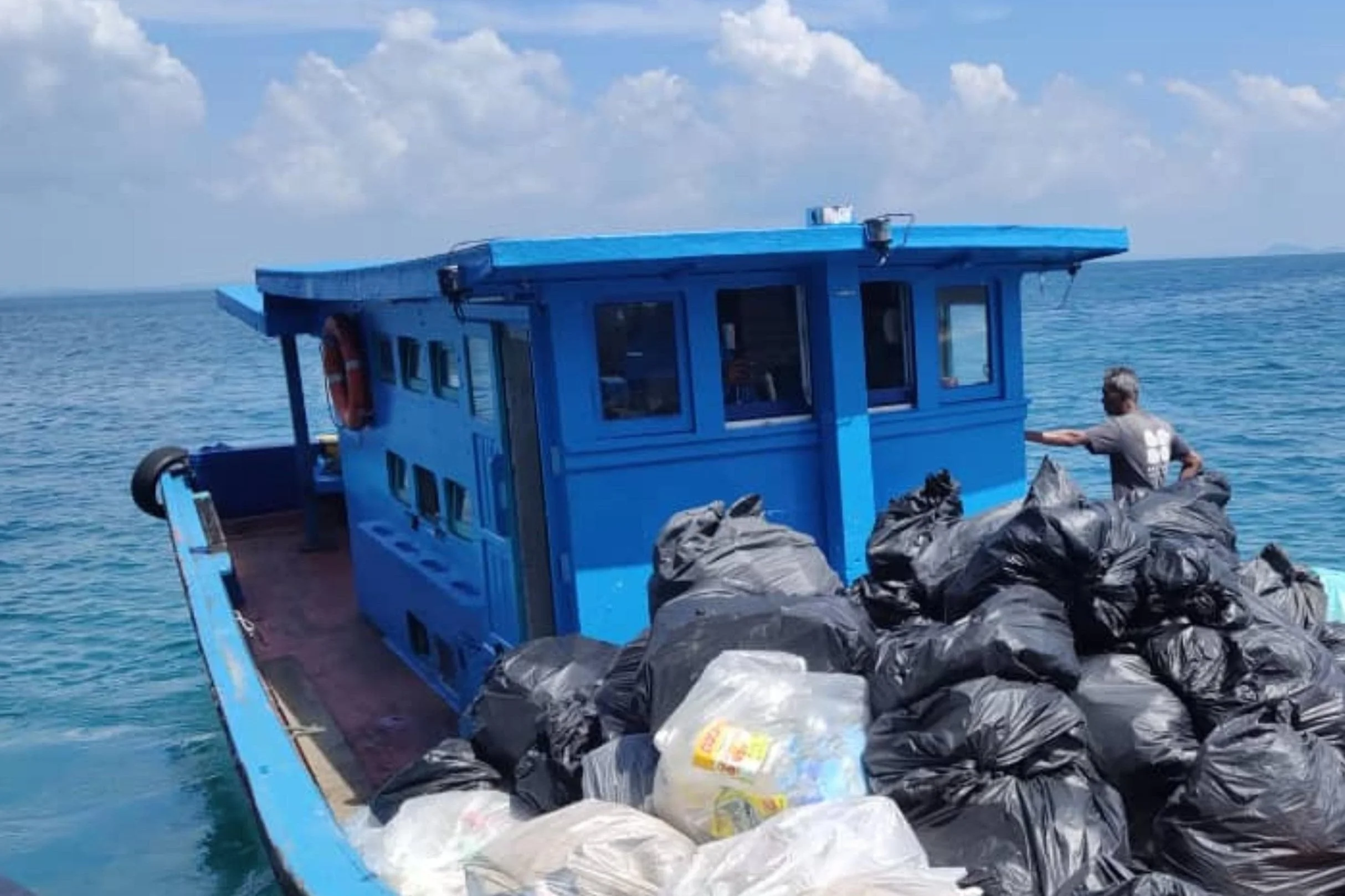intergrated island waste management | rumah eko
TIC promotes zero-waste initiatives and sustainable waste practices on the island via RUMAH EKO model system, combining education, recycling, and community collaboration to reduce environmental impact.
Nestled in the serene environment of Besar Island, Rumah Eko serves as both an eco-learning hub and a welcoming home for visitors seeking a deeper connection with nature. It also provides solutions for island waste management under the Integrated Island Waste Management concept. The name Rumah Eko is a beautiful blend of two languages. Rumah means ‘home’ in Bahasa Malaysia, while Eko is derived from ‘ecology,’ reflecting the centre’s focus on environmental sustainability. Together, Rumah Eko embodies a communal, educational and nurturing atmosphere where ecological awareness and sustainable living are both taught and embraced.
Managing waste on islands is always a significant challenge. On an island such as Pulau Besar which does not have existing collection, disposal, or recycling systems in place, it is even more so.
To address this, in 2024, TIC in collaboration with The Habitat Foundation (THF) and the United Nations Development Program (UNDP), designed and implemented a pilot waste management system on Pulau Besar that incorporates elements of recycling, upcycling, and composting.






